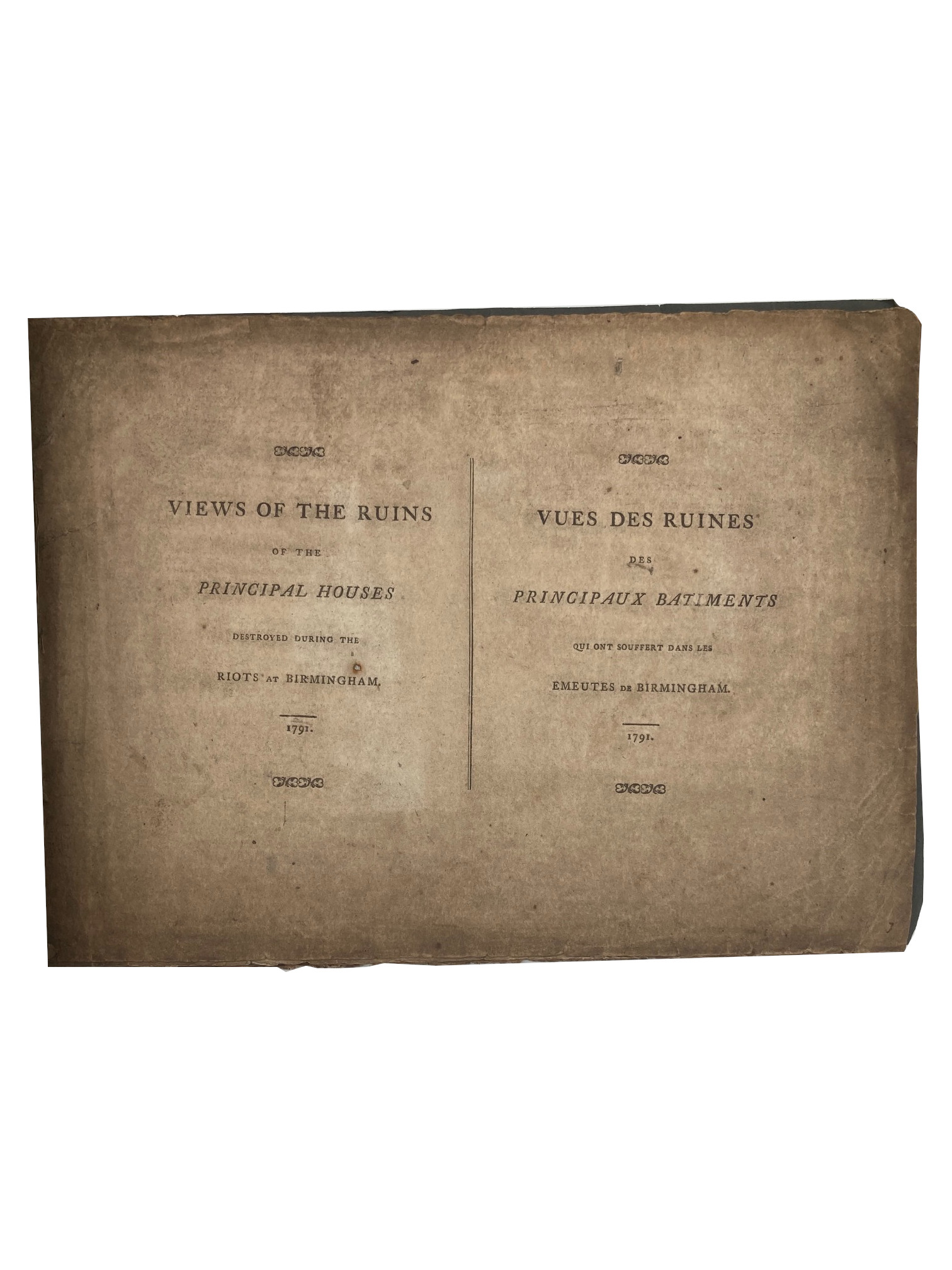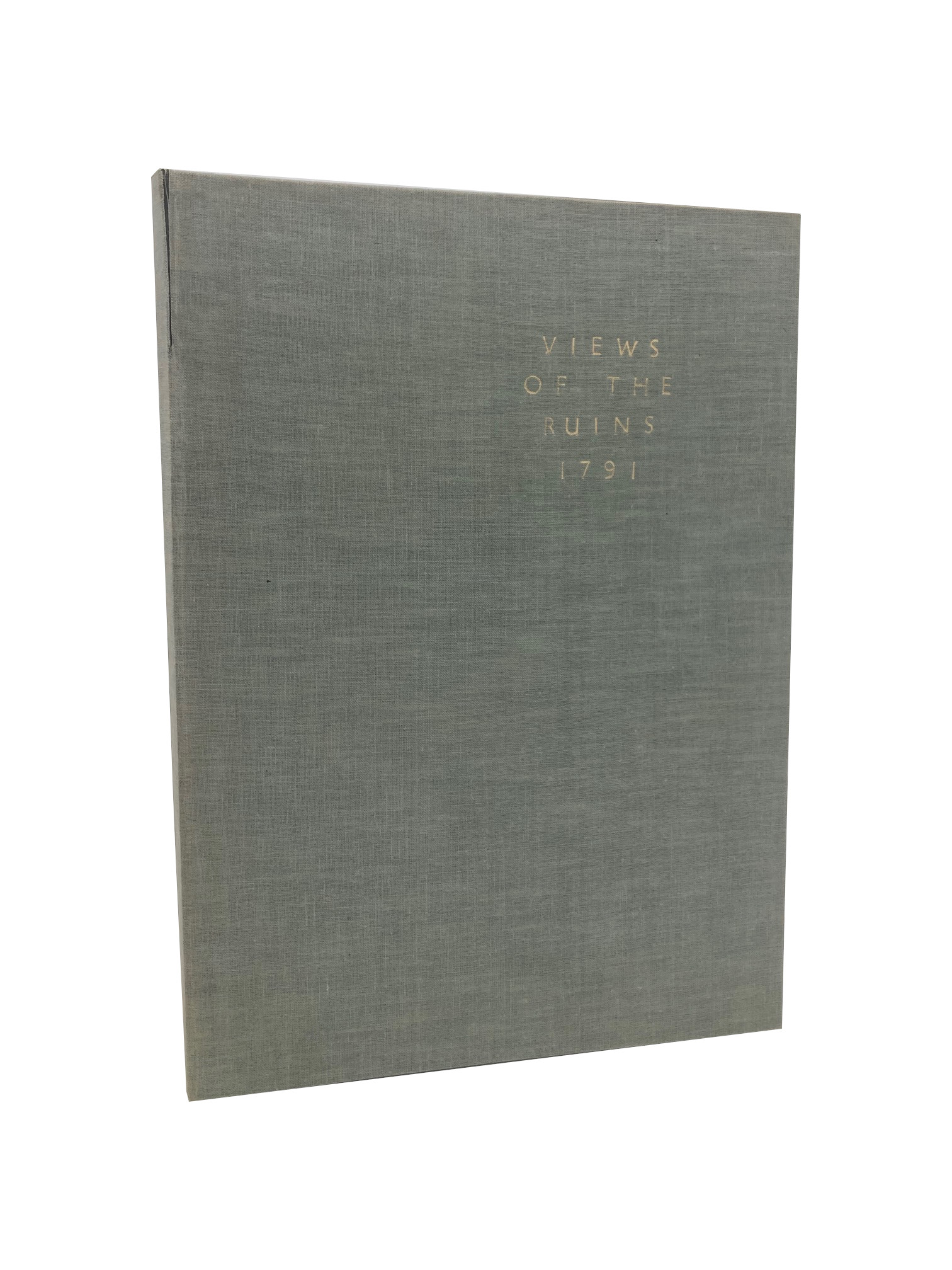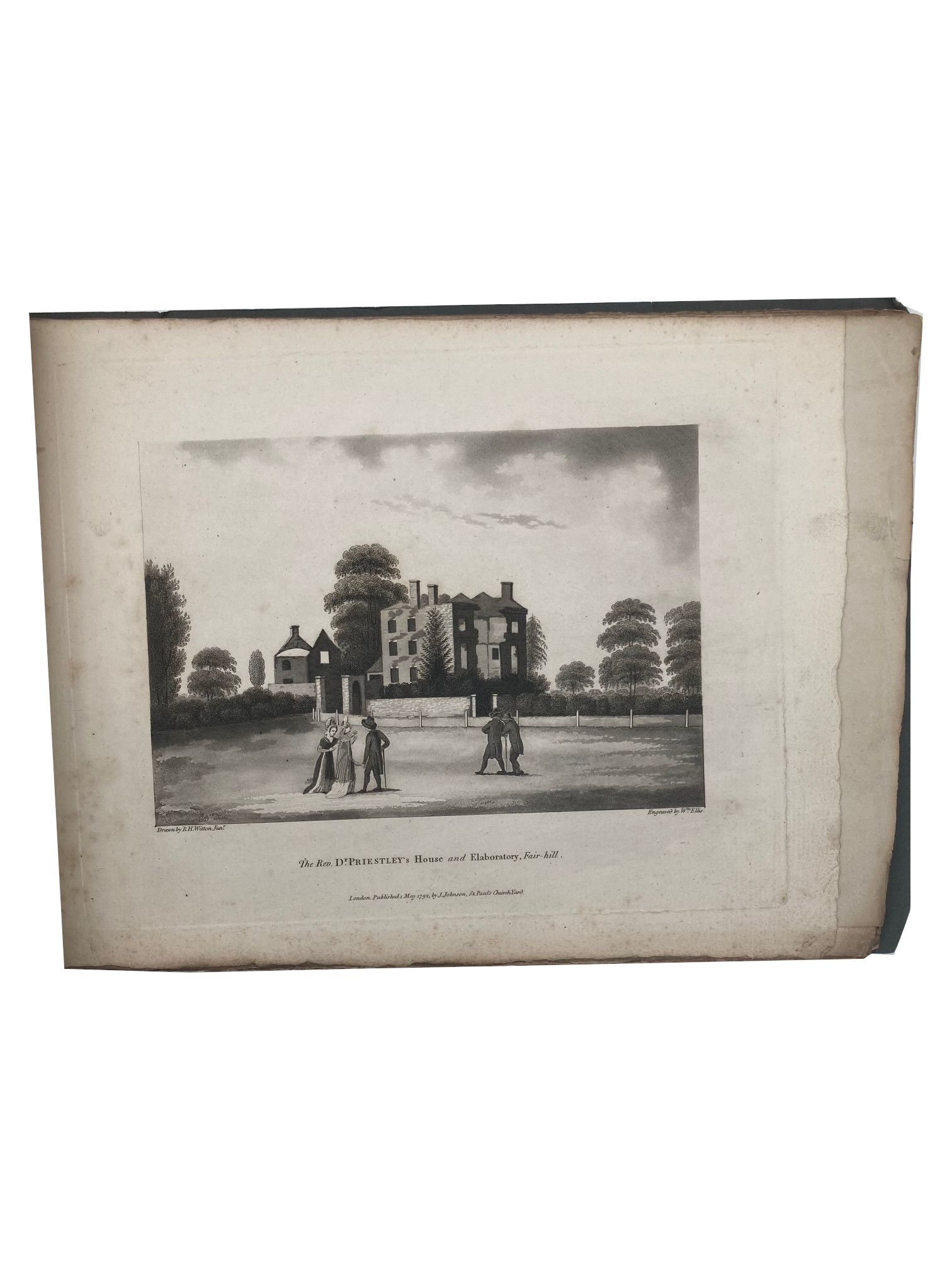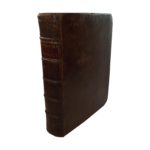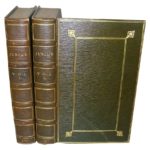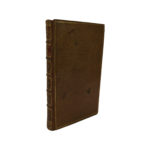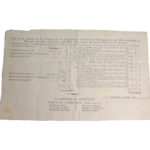Description
[004344] [Birmingham Riots]; Priestley, Joseph. Views of the Ruins of the Principal Houses Destroyed During the Riots at Birmingham WITH The Riots at Birmingham, July 1791. ill. Ellis, William and Witton, P. H. London: J. Johnson, 1792. First Edition. 4to (Oblong). Card Covers. Good. First item, 1792, eight lithographic plates, each with a leaf of letterpress in English and French; second item, published by Arthur Bache Matthews, Birmingham, 1863, [3], ii-iv, [1], 16pp, [2], eight lithographic plates, each with a leaf of letterpress in English and French (copied from the first named)
Both in original wrappers, and then with later plain paper wrappers (first named stitched in, second pasted in). Original covers of the first named are browned, with a small hole to upper cover, plates browned to edges, occasional light foxing, water stain to margin (though inside plate mark) to first plate, manuscript list of plates to reverse of upper cover, but generally fairly clean. In the second named, the original covers are slightly chipped to corners, occasional light foxing, a couple of small tears to head of text leaves and later wrapper, but generally fairly clean. Both have the bookplate of John L. Marks (loose in the first named), with the bookplate of Percival Hinton also loose in the first named. Both are housed in modern cloth chemise, lettered to the upper cover, with a split of head of upper joint, but holding well
The plates are engraved by William Ellis after drawings by P. H. Witton. For Ellis (1756-1810), see Alexander, A Biographical Dictionary of British and Irish Engravers 1714-1820, pages 324-325), the plates in the second named are after those in the first
The Birmingham Riots, or the Priestley Riots, occurred from the 14 July to the 17 July 1791, when rioters, fuelled by anti-Dissenter feeling, mixed with alcohol and a fear of French Revolutionary thought, burned down several Dissenter chapels and several houses of prominent local Dissenters, and members of the Lunar Society, like Joseph Priestley. The publisher Joseph Johnson was a good friend of Priestley’s. For an account of Priestley’s actions during the riots see Hay, Dinner With Joseph Johnson – Books and Friendship in a Revolutionary Age, pages 227-234). Hay states that it was Priestley who commissioned the original pamphlet (Ibid, page 233)
Abbey Scenery 48 (first named)
